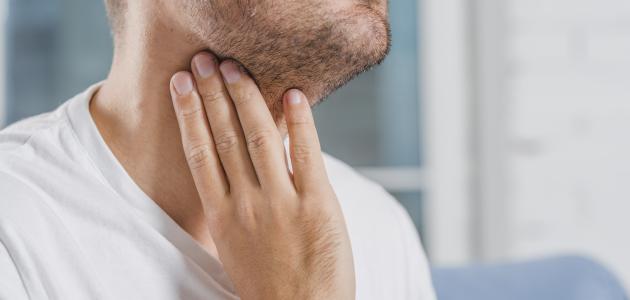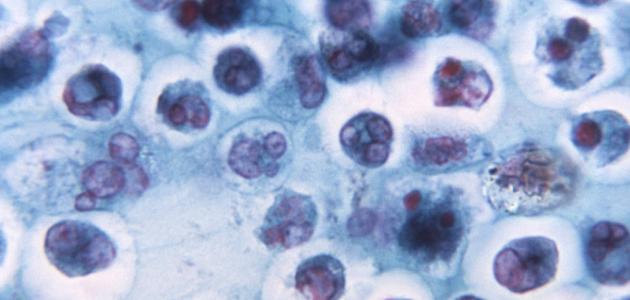High prolactin
Excess or elevation of the milk hormone (prolactin) in the blood (in English: Hyperprolactinemia) is defined as a health condition in which there is an increase in the secretion of the hormone prolactin (in English: Prolactin Hormone), which is the hormone responsible for the production of milk in the breast, and this increase may occur as a result of several reasons. Of which; Pregnancy, or due to the presence of a tumor that causes increased secretion (in English: Prolactinoma), or it may occur as a result of the presence of a large tumor in the pituitary gland (in English: Pituitary Gland Tumor) that causes pressure on the rest of the gland. It is worth noting that some medications may cause an increase in the hormone prolactin. Such as psychiatric medications and others.
Symptoms of high prolactin
Symptoms may vary and differ from one person to another, but in women, high prolactin in general may cause a decrease in sexual desire, milk secretion from the breast, infertility, and changes in the menstrual cycle. In men, high prolactin may cause a gradual and continuous loss of sexual desire, in addition to impotence, low sperm count, and breast enlargement.
Treating high prolactin
Natural treatments for high prolactin
The following methods can be used to treat high prolactin:
- Eat plants that support and maintain the endocrine system: These plants are classified as substances that help the endocrine system adapt and adjust to different conditions, and among these substances are the Ashwagandha plant, or what is known as Ashwagandha (in English: Withania Somnifera), Schisandra (in English: Schisandra Chinensis), and the herb. Shepherd's wand (Polygonum Multiflorum), licorice (Glycyrrhiza), American ginseng (Panax Quinquefolius), Siberian ginseng (Eleutherococcus Senticosus), Centella Asiatica, in addition to Maca (in English: In English: Lepidium Meyenii) which nourishes the endocrine system and enhances the functioning of the thyroid gland in cases of hypothyroidism, and maintains the level of energy, sexual desire and hormones in men and women, in addition to the herb Maryam or the so-called chaste tree (in English: Vitex Agnus-Castus), which has an effect It is evident at the level of the prolactin hormone, as it reduces prolactin levels when they are high, stimulates hormonal balance and helps regularize the menstrual cycle, as it maintains the natural level of progesterone in the body and thus promotes the occurrence of ovulation on a regular basis.
- Maintaining the health of the thyroid gland: (in English: Thyroid Gland) by eating foods that contain the element iodine (in English: Iodine), and nutritional supplements that contain a group of B vitamins, vitamin A, vitamin C, and vitamin E, which contain zinc, copper, and selenium, In addition to eating the golden root plant (in English: Rhodiola Rosea) and others. Maintaining the health of the thyroid gland is considered an essential component in treating high prolactin, because a decrease in thyroid hormone leads to an increase in the percentage of thyroid-stimulating hormone (in English: Thyroid-releasing hormone), which may lead to an increase in the secretion of prolactin.
- Controlling stress and nervous pressure: This is because stress increases the percentage of stress hormones in the body, such as the hormone cortisol, which in turn inhibits the reproductive hormone stimulating hormone (in English: Gonadotropin Releasing Hormone), which is responsible for secreting a group of hormones, including prolactin, and this causes several effects, such as ; Inhibiting the ovulation process, weakening sexual activity, reducing sperm count, affecting the balance of hormones in the body, etc.
Pharmacological and surgical treatments for high prolactin
Taking and choosing the therapeutic procedure depends on the cause that causes the prolactin rise. It is worth noting that there are some cases in which the prolactin rises without any symptoms, or with the presence of a few minor symptoms, then the patient may not need any type of treatment. Among the options available to treat high prolactin, if necessary:
Read also:Breast enlargement in men- Use of some medications that reduce the production of the hormone prolactin: Among these medicines are: Bromocriptine and cabergoline, as these medications are used to treat cases of high prolactin resulting from the presence of a tumor, and also for cases of unknown cause.
- Surgical intervention: This option is used for cases of high prolactin resulting from the presence of a tumor. It is used when the tumor does not respond to drug treatments, and it is also used if vision and the ability to see are affected by the presence of the tumor.
- Radiation therapy: It is used in cases of a tumor that does not respond to drug or surgical treatment, as radiotherapy aims to reduce the size of the tumor.
Diagnosis of high prolactin
High prolactin can be diagnosed through the following methods:
- Blood tests: Where a blood test is performed (in English: Blood Test) to confirm the presence of an increase in the prolactin hormone, and if it is elevated, the thyroid hormones are examined to find out the cause, where hypothyroidism is ruled out as a cause of the increase in the prolactin hormone if the proportion of prolactin hormones is The thyroid gland is within normal limits. It is also important to ask about other health conditions and treatments taken by the patient, and to rule out pregnancy as a cause of high prolactin.
- Magnetic resonance imaging: It is used in cases where it is suspected that there is a tumor causing increased secretion of the hormone prolactin. Magnetic Resonance Imaging (MRI) images the brain, and in most cases the pituitary gland is also imaged, as this technique is able to detect the presence of a tumor in the pituitary gland and clarify its size.









